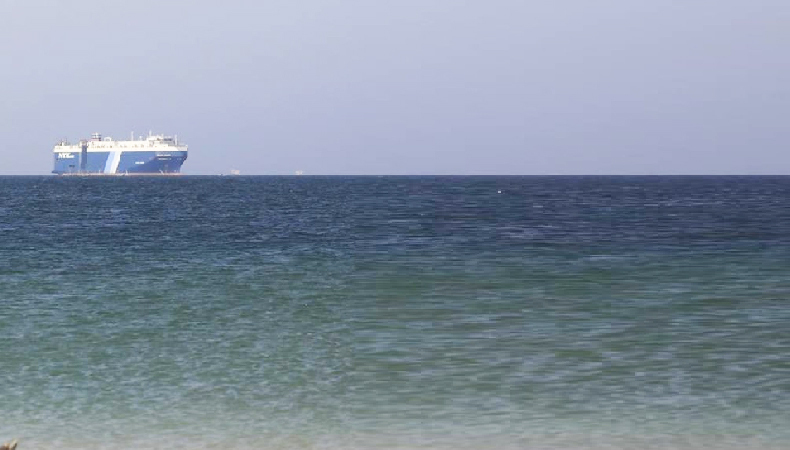Arab Nations Shy of US-led Red Sea Coalition

There’s a notable absence of Arab nations in the Red Sea coalition led by the United States to tackle the Houthis. Called ‘Operation Prosperity Guardian’, the multinational security initiative is made up of 10 countries – UK, Canada, France, Italy, the Netherlands, Norway, Seychelles, Spain and Bahrain.
It will establish a safe corridor for commercial shipping and protect trade ships in the Red Sea. Due to Yemen’s Houthi attacks many oil tankers and cargo ships changed their course, sailing through the Suez Canal.
The US National Security Council spokesman John Kirby said ships and aircraft from multiple nations are and will continue to join the United States in conducting maritime surveillance and taking defensive action as appropriate to protect commercial ships from the Houthis.
Arab Countries Not in Red Sea Coalition
Joost Hiltermann, MENA program director at the International Crisis Group, believes Arab countries are not interested to get into a fight with the Houthis. He said Western states would want to establish deterrent power rather than engage in direct conflict. “Arab states are quite okay with Western nations taking up this role because they have a joint interest in the free movement of commercial traffic.”
In regards to Saudi Arabia, Hiltermann said the kingdom has no interest in the coalition as it would want to get out of the war in Yemen, and not get further dragged into it. “Saudi Arabia is heavily involved in negotiations with the Houthis, so joining such a coalition now would probably mean a breakdown in these talks.
Ibrahim Jalal, a non-resident scholar at the Middle East Institute, says there are multiple reasons Saudi Arabia and other Middle Eastern countries staying out of the coalition. “First, there is a large discontent with the US and there is a crisis of confidence between strategic partners. Second, the Houthi threat of resuming cross-border attacks, so Saudi Arabia has national priorities that do not go hand in hand with the American posture.”
Jalal added that the Middle Eastern countries are trying to reaffirm a degree of independence in their foreign and defense policymaking to show that they are not interested in the reactions, but instead in a strategic, calculated engagement in the region.
Keep Reading
Yemen Military Condemns Houthis Attacks on Ships
Two YouTube activists prosecuted by Houthis for critical videos
Red Sea Coalition Reflects US Failure
Furthermore, experts believe the formation of the new coalition to ensure free navigation in the Red Sea reflects the failure to manage the conflict in Gaza. Jalal says the Operation Prosperity Guardian is like a cosmetic measure, and not a strategic fix. “I think we’ve had a massive failure in the security architecture in the region, and this is just a reflection of that failure, be it the airspace or the maritime domain.”
He said the security collaboration could be more strategic in terms of support, in terms of mobilization, and in terms of coordinating in support of the freedom of navigation.




